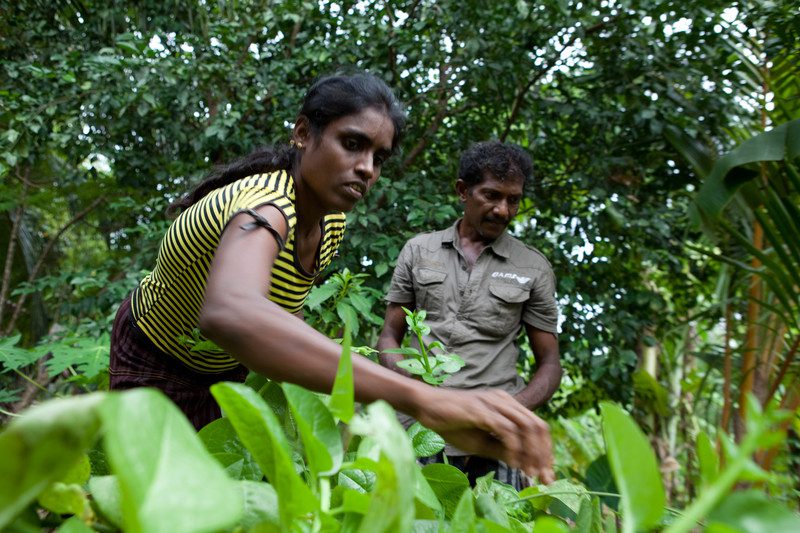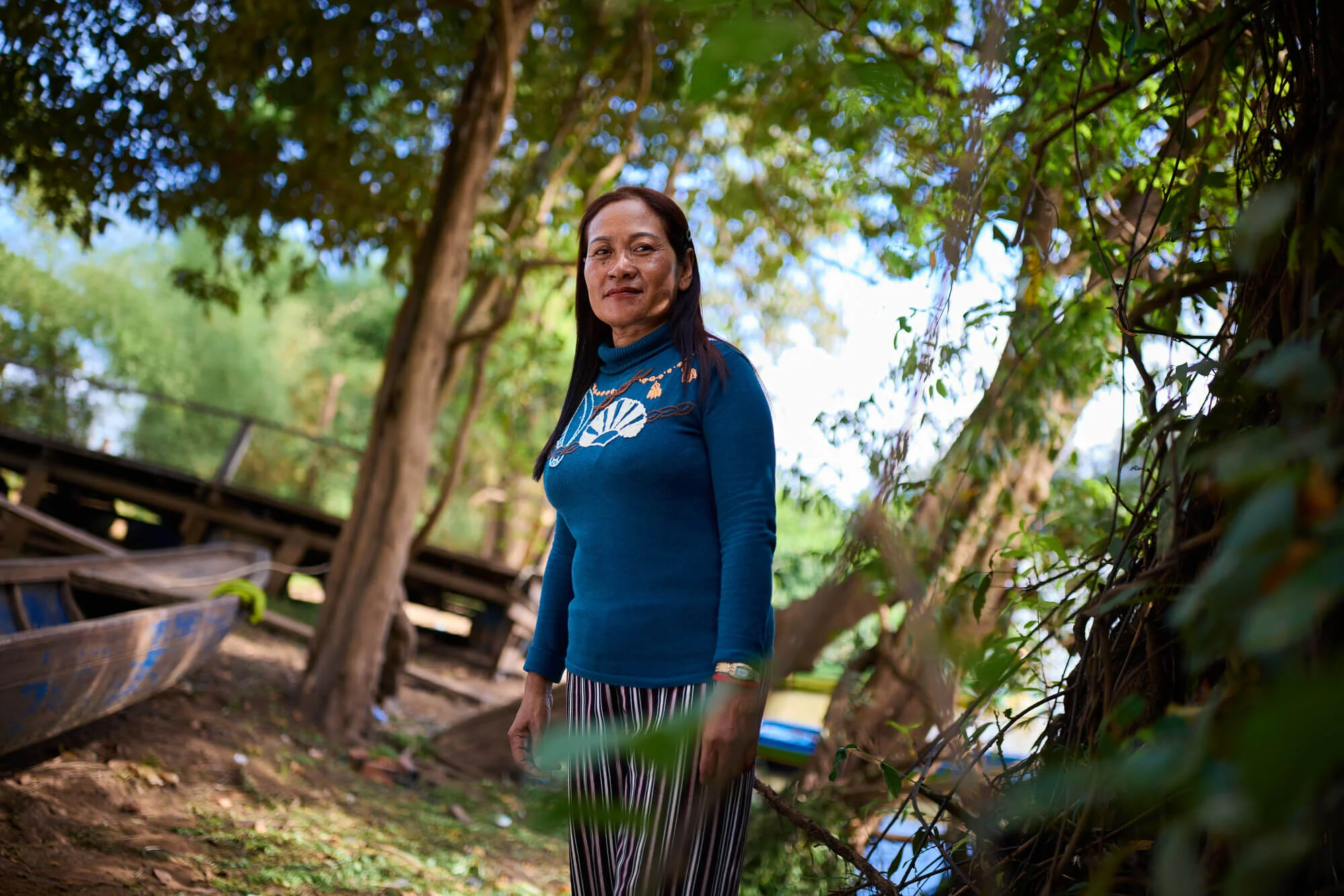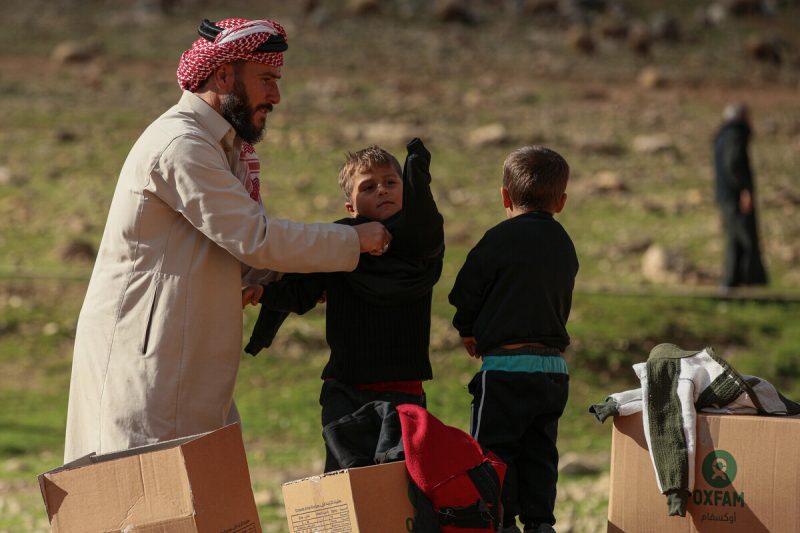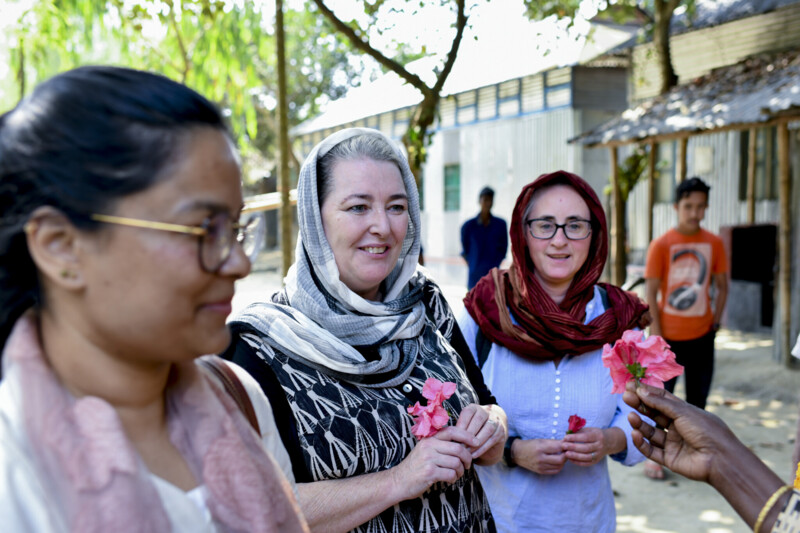Last week, we introduced you to Chandrani, a young Sri Lankan woman who’s been able to stop hunger and start growing as a result of our home gardening program and support from people like you.
This week, she describes how things have changed since she became involved with Oxfam.
Interview by Marian Reid
What is a typical day like for you?
I get up in the morning and my first job of the day is to send my children to school. Then I attend to domestic chores and … to my home garden because my husband goes to work and I am the one left at home. So I go around the home garden to see that it is properly maintained.
How exactly are you involved with Oxfam?
It was after we joined Oxfam that we got the lift water irrigation scheme, and that was one of the greatest things we received. In addition to that, we also got loans. We obtained a loan of 40,000 rupees (about AUD $750) to develop this home garden.
Did you get a loan for yourself, or as part of a group?
It is a collective — there are three officers and they are responsible for distributing the money among the members. So they go to Oxfam and receive the loan and distribute it among the group according to our needs.
Can you tell us about the group?
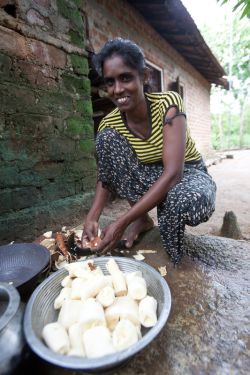
The name of our group is the Organic Vegetable Producers’ Association. Oxfam has given us training on how to cultivate various crops, and field officers visit our homes. They give us advice and instructions on cultivating the crops and how the lift irrigation scheme could be arranged in the home garden, and how certain crops are more suitable for this particular land.
How many in the group?
It is very difficult for us to sell our produce individually so we formed a collective of 21 women … We have four people who set up a shop, and we all bring our produce there and then send it off to the market.
What do you grow in your garden?
Now we have some permanent crops like coconut and bananas. Any undergrowth is impossible where there are permanent trees. Where there are not permanent crops, we have cultivated vegetables for our domestic consumption.
Like what?
In my home garden I grow capsicum, green chard, manioc (cassava), radish, beetroot, spinach, bananas, chillies and various other green leaves which we can use for sambal.
We don’t use any chemical fertilisers. I make fertiliser myself, I make organic compost myself and I use it in my cultivation. And that way I have been able to provide myself and my family with a very good, nutritious meal. I don’t have to buy any food from outside.
You grow everything you need?
I don’t usually buy any vegetables at the market now; just during heavy rains when our crops are destroyed … We have all the vegetables we need in the garden.
Do you save all the money you used to spend on vegetables?
Now the money that I spent on vegetables is going towards the education of the children. We are not indebted now. And that is because we don’t have to spend on vegetables.
Do you grow enough vegetables to sell?
Yes. I can sell my bananas and manioc. And about three months ago I got about 5,000 rupees (AUD $95) as an income from long beans alone. So I can make income from selling the surplus.
Can you compare the vegetables you eat now with those you ate before the home garden?
There is not a big difference [to] the kind of vegetables that we bought, but they were low quality. Some were withered and dry when we bought them home. And some were infested with various chemicals. Even though the varieties were the same, the quality is very much higher now.
What kind of meals do you feed your children?
I always make sure I give my children a balanced diet. I always cook some green leaves and dried fish I get from the shop. We don’t always eat meat and fresh fish so I try and get dry fish. And … something from the garden on that day.
What problems have you experienced with bad weather and flooding?
The floods were the biggest problem. Last year alone we had two floods. They destroyed all our crops. And next year, probably, in January, there could be another flood. Last time, there was water up to the window level.
What difference has this program made to the lives of you and your family?
The money I earn is used for the development of the family. I get a lot of support from my husband to go to training so I have got new knowledge and the confidence to move forward. And I do everything to give an education to my children.
What is the main thing you’ve got out of this personally?
The most important thing I have received from Oxfam is new knowledge … I have my self confidence and I can do anything. I can go anywhere and talk to anyone. I have that self confidence as a woman.
Oxfam has helped us to go forward. To develop our future. They have shown us a path, and it is up to us now.
Next time: Indrani’s story
Find out more
Help more women like Chandrani start growing a better future by donating to our Stop Hunger Appeal.
